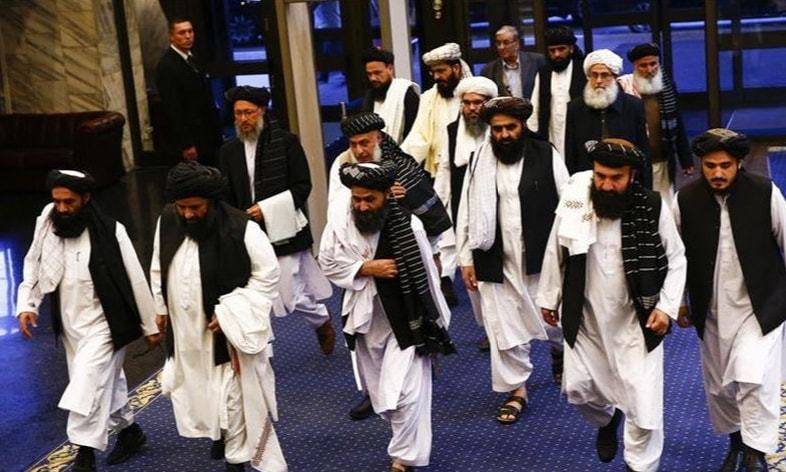
While tangible outcomes of the Fall of Kabul will take their time in shaping up, what is unmistakable is the commotion common to everyone linked to the Afghanistan crisis. The Taliban’s rise is jolting the post-9/11 world order.
It’s hard to compare the scenario to Saigon, or even the Soviet withdrawal from the same territory. For, the US’s invasion has created unique perils in the nuclear-armed neighbourhood, as it shifts its focus to a longer, quieter, war against China.
The repercussions are even being manifested in India, which is being pushed as an ally to contain China, as Modi blitzes at the UN and makes his presence loudly felt in the US.
In the 20 long years of trials and tribulations, Pakistan has had to endure being an ‘obscure’ ally. The uncertain ‘friendship’ with Taliban shows that Pakistan’s leadership has floundered at both ends.
But the most worrying bit is the distressing call for amnesty being considered for the TTP. While cherishing the celebratory ‘hot’ drink at Kabul, the hand was hurriedly being extended to the TTP, with whom the prime minister says we have been holding ‘secret talks’.
Pakistan celebrating the departure of the India-backed government is understandable. But it should have been used to bring peace to former FATA and northern areas.
Offering amnesty to a group that has carried out some of the deadliest attacks in the country, including the APS massacre, is a catastrophic move. On cue, the TTP has upped the ante in its attacks on security personnel.
Even if Islamabad thinks the Afghan Taliban have influence over their ideological brothers, the TTP, why is the Pakistani leadership displaying its cards in such haste? Let’s not forget that Pakistan hasn’t even recognised the Islamic Emirate, and has to wait for the world making the first move.
Instead of yet another presidential ‘ordinance’, and secret talks with the TTP groups, the matter should be brought to the parliament. That would, at least, provide some legitimacy to the negotiations.
The government’s haste in siding with the new Taliban regime in Afghanistan and rush to pardon the TTP, shows that the Pakistani leadership is desperate to distance itself from the two decades of alliance with the US.
Even if the matter is brought to the parliament, the TTP might not be interested in a one-sided pardon. Meanwhile, US sanctions hover over the country, which is rushing to wrap and deliver amnesty gifts in the region.
It’s hard to compare the scenario to Saigon, or even the Soviet withdrawal from the same territory. For, the US’s invasion has created unique perils in the nuclear-armed neighbourhood, as it shifts its focus to a longer, quieter, war against China.
The repercussions are even being manifested in India, which is being pushed as an ally to contain China, as Modi blitzes at the UN and makes his presence loudly felt in the US.
In the 20 long years of trials and tribulations, Pakistan has had to endure being an ‘obscure’ ally. The uncertain ‘friendship’ with Taliban shows that Pakistan’s leadership has floundered at both ends.
But the most worrying bit is the distressing call for amnesty being considered for the TTP. While cherishing the celebratory ‘hot’ drink at Kabul, the hand was hurriedly being extended to the TTP, with whom the prime minister says we have been holding ‘secret talks’.
Pakistan celebrating the departure of the India-backed government is understandable. But it should have been used to bring peace to former FATA and northern areas.
Offering amnesty to a group that has carried out some of the deadliest attacks in the country, including the APS massacre, is a catastrophic move. On cue, the TTP has upped the ante in its attacks on security personnel.
Even if Islamabad thinks the Afghan Taliban have influence over their ideological brothers, the TTP, why is the Pakistani leadership displaying its cards in such haste? Let’s not forget that Pakistan hasn’t even recognised the Islamic Emirate, and has to wait for the world making the first move.
Instead of yet another presidential ‘ordinance’, and secret talks with the TTP groups, the matter should be brought to the parliament. That would, at least, provide some legitimacy to the negotiations.
The government’s haste in siding with the new Taliban regime in Afghanistan and rush to pardon the TTP, shows that the Pakistani leadership is desperate to distance itself from the two decades of alliance with the US.
Even if the matter is brought to the parliament, the TTP might not be interested in a one-sided pardon. Meanwhile, US sanctions hover over the country, which is rushing to wrap and deliver amnesty gifts in the region.

